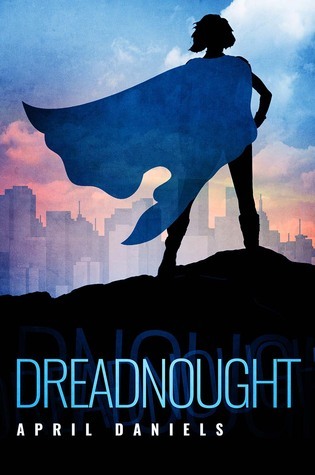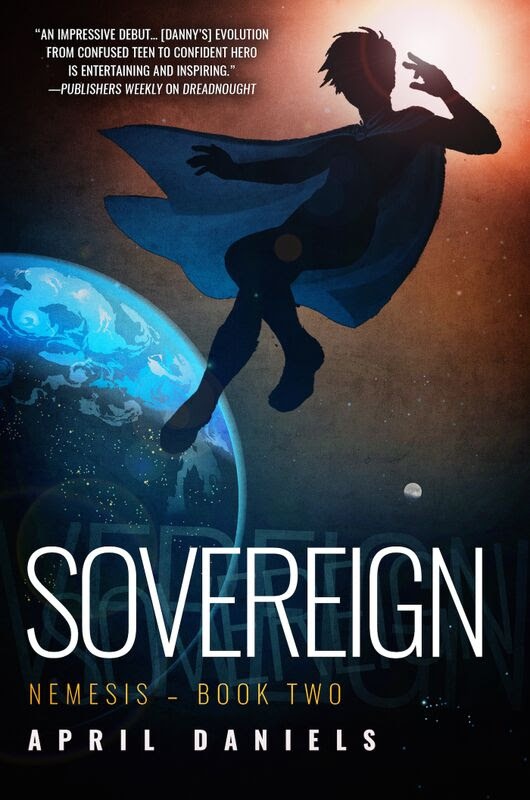#lgbt will probably go down if you exclude smaller projects
Explore tagged Tumblr posts
Text
To be fair, these stats count ALL steam releases which includes a staggering number of smaller studio and independent games. I'm not saying they should only have counted AAA games but I do think they should have limited it to games which actually have a following.

#not trying to go to bat for the misogynists claiming its a real thing#i just dont like bad methodology#and frankly#while female protag might go up a few perecentile points#lgbt will probably go down if you exclude smaller projects
50K notes
·
View notes
Photo


Dreadnought and Sovereign - the Nemesis series
Published by Diversion books on 26th July 2017
Genres: superheroes, trans, young adult, fantasy, LGBT
Goodreads | Amazon UK | Amazon US | Book Depository | Barnes & Noble
Blurb: Danny Tozer has a problem: she just inherited the powers of Dreadnought, the world’s greatest superhero.Until Dreadnought fell out of the sky and died right in front of her, Danny was trying to keep people from finding out she’s transgender. But before he expired, Dreadnought passed his mantle to her, and those secondhand superpowers transformed Danny’s body into what she’s always thought it should be. Now there’s no hiding that she’s a girl.
It should be the happiest time of her life, but Danny’s first weeks finally living in a body that fits her are more difficult and complicated than she could have imagined. Between her father’s dangerous obsession with “curing” her girlhood, her best friend suddenly acting like he’s entitled to date her, and her fellow superheroes arguing over her place in their ranks, Danny feels like she’s in over her head.
She doesn’t have much time to adjust. Dreadnought’s murderer—a cyborg named Utopia—still haunts the streets of New Port City, threatening destruction. If Danny can’t sort through the confusion of coming out, master her powers, and stop Utopia in time, humanity faces extinction.
Interview with the author, April Daniels:
Hi, welcome to LGBT YA! Could you start by introducing us to the world of the Nemesis series?
Hello! I’d be glad to. The Nemesis series (Dreadnought, out in January, and Sovereign, out later this month) mainly takes place in New Port City, a metropolis that is described in a lot of my initial project notes as Not-Seattle. It’s a major American city in Northwest Washington on Puget Sound, but unlike its real-world counterpart it was the dominant population center on the west coast for much of the 20th century, which means it is both larger and more heavily urbanized than any real-world city in the Pacific Northwest. Seattle might exist as a small suburb, but it hasn’t appeared in the books.
Approximately seventy years prior to the start of the series, a new wave of increasingly powerful super-humans appeared in the world stage. Superheroes and vigilantes are a part of everyday life, albeit one that most people don’t have much experience with.
This is the environment our narrator, teenage trans girl Danielle Tozer finds herself growing up in, and she is something of a superhero fangirl. When Dreadnought, the greatest hero in the world, gets shot out of the sky in front of her and she inherits his powers, Danielle’s body is changed to be what she always wanted it to be, and suddenly there’s no hiding that she’s a girl. On top of that she quickly learns that the world of professional superheroes is far less welcoming than she had hoped. I tried to ride the line between bleak cynicism in the flawed institutional design of the superhero laws and the optimistic sincerity of some of the heroes trying to work within a broken system.
I wanted to create the feeling of a DC or Marvel style comic book universe with decades of history that shapes the present, but without the impenetrable continuity snarls and obscure back-story that characterize a lot of the output of the Big Two.
Who is your favourite character in your books? What advice would you give them?
Calamity is an absolute blast to write, but she should learn to duck. How much of Dreadnought is inspired by your own experiences (excluding the magic!)?
A lot of the stuff relating to being trans, especially the description of dysphoria, are taken from my own life. The emotional damage that results from abuse is from my experiences as well, although the format of the abuse I endured was considerably different than the one Danielle confronts in Dreadnought.
Dreadnought was your first published novel. What was the publication process like for you?
I went to school to become a writer, enrolling in one of the few undergrad creative writing programs in the country at UC Santa Cruz. I thought I’d be published shortly after graduating, but it took nine years and I was homeless for some of that. Don’t do this to get rich.
When I finally had a manuscript I knew I could sell, I started querying agents. Querytracker.net is where you want to start that process. It’s long and stressful and difficult but eventually an agent said yes and we got to move on to the next stressful wait, but this time I had an agent doing the hard part. That’s when things started to feel a little real.
I was lucky in that we got an offer in our first round of submissions. We landed with Diversion Books, a smaller publisher, and working together my editors and I put the manuscript into publishable shape.
Then there was a lot more waiting, and nerves and anxiety and then one day I was published and it sort of took me by surprise. At first it was sort of just another data point: okay, milestone passed, on to the next one. About 24 hours later I had a breakdown sob-laugh-cry fit for about an hour.
And that’s the publishing process.
What are some of your favourite diverse SFF books?
Right now, I’m really into Martha Wells’ work, which often deals with protagonists who clearly have some kind of significant trauma in their pasts. This isn’t a sort of character background that’s marketed as diversity, but in the sense of being literature that helps someone recognize themselves and feel a little more complete, a little better able to face the day, then her work certain falls under the umbrella of diverse SFF books. Books that I really, really needed this year.
Do you think diversity is a trend in publishing? What would you, as a trans reader, like to see more of in the future of publishing?
I think diversity has been a trend for a while, and we’ve been seeing the limits of that approach for some time now. The common pattern, historically, is that authors who did not have any personal experience with a particular kind of marginalization would read two or three books, decide they were an expert, and then write a book about The Trans Experience or whatever. This would only be annoying if it stopped there, but it can do real harm by perpetuating stereotypes and blocking marginalized authors out of the market. That’s where not thinking too deeply about diversity gets you; nothing actually changes, except the wallpaper.
Things are looking up, though. I don’t expect that this will never happen again, but I do think people are starting to move toward the understanding that if you want to read a book about a trans person, you should read a book by a trans person. The own-voices movement is one I’m a huge fan of. I think that’s probably the right strategy for where we are at the moment.
Obviously this doesn’t mean authors can’t write characters who are unlike themselves; it means authors shouldn’t claim to speak for others.
Nobody can speak for us as well as we can speak for ourselves, and that’s true no matter who you are, unless you’re in politics. Publishers should to worry less about diversity in books, and more about diversifying the people whose work gets accepted for publication and promoted. The solution will need to start at home, so this will mean diversifying their own staffs as well.
What advice would you give to authors who are planning to include a trans character in their next works?
It’s not too difficult, I don’t think. Don’t describe their bodies in a way that’s any more detailed or lurid than you would a cisgender body. Give them personality features aside from being trans. Don’t get cute with pronouns, don’t do a “surprising reveal”, and don’t kill them. Pretend we’re people and you can’t go too far wrong.
What are you writing next?
Can’t say, but past experience suggests people will like it.
Finally, what’s your favourite conspiracy theory?
The best conspiracy theory is the one that NASA killed JFK to keep him from telling Khrushchev about the alien castles on the Moon. The book you want to read is called Dark Mission by Richard Hoagland and it is the most batshit story you will ever hear.
From the Masonic ritual allegedly conducted shortly after the Eagle landed in the Sea of Tranquillity to the crank-a-licious numerology chapter, this book has it all, and also grainy photographs reputed to be of kilometres-tall crystal structures on the Moon. A perfect blend of kitschy Americana and paranoid hallucinations, this book has my highest recommendation for conspiracy fans of all sorts.
Thank you for asking.
April Daniels was born in a military hospital just before it was shut down for chronic malpractice—in hindsight, that should have been an omen. After various tribulations in childhood and the frankly disconcerting discovery that she was a girl, she graduated from UC Santa Cruz with a degree in literature, and then promptly lost her job during the 2008 stock crash and recession. After she recovered from homelessness, she completed her first manuscript by scribbling a few sentences at a time between calls while working in the customer support department for a well-known video game console. This book was mainly porn, with a few swordfights included for variety. When April realized she couldn’t pitch her book without blushing, she decided to write something else. During yet another period of unemployment, she wrote Dreadnought.
She has a number of hobbies, most of which are boring and predictable. As nostalgia for the 1990s comes into its full bloom, she has become ever more convinced that she was born two or three years too late and missed all the good stuff the first time around. Having recently become a pagan, April is currently enduring the karmic backlash for all the times she was smug about her atheism.
Early in her writing practice, April set her narrative defaults to “lots of lesbians” and never looked back.
Follow April on tumblr at @msaprildaniels
146 notes
·
View notes